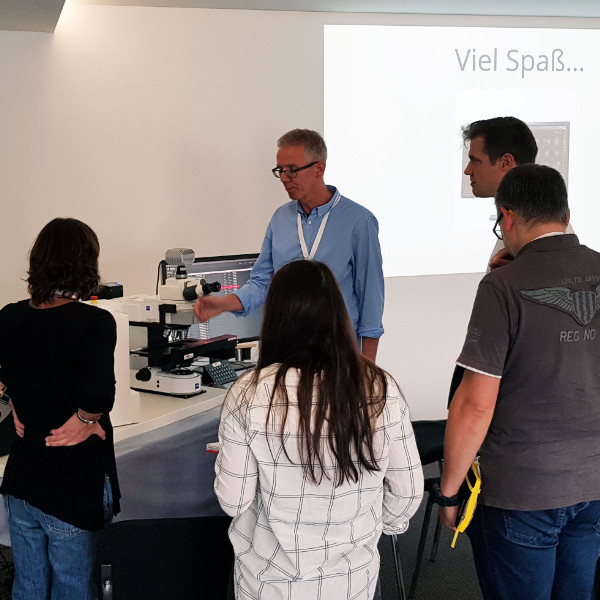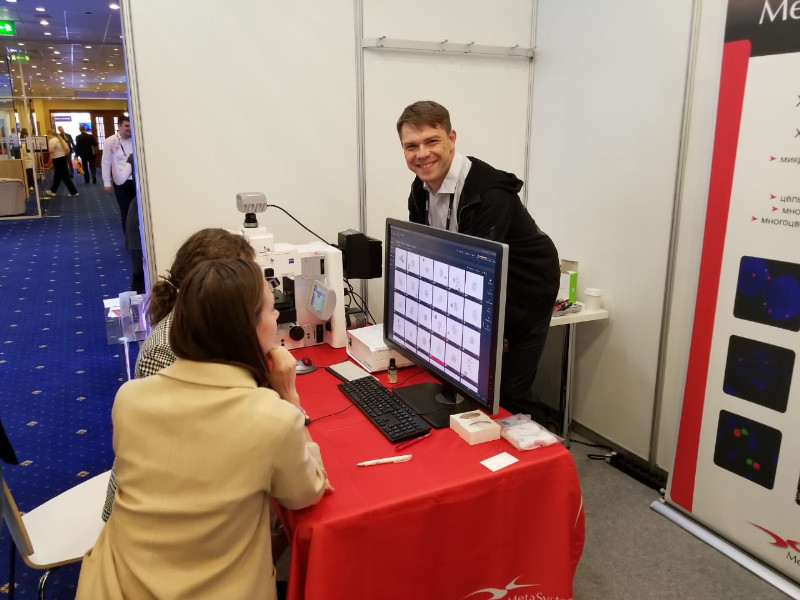About 100 guests from 36 countries met on the XVIII. MetaSystems Distributor Meeting (DM) in November to exchange experiences and to get to know new trends and developments at MetaSystems.

Our internet site may contain information that is not approved in all countries or regions. To ensure accuracy of content, please select your country/region of residence. Choose International if your country is not listed.
This information will be saved using cookies. To find out more about cookies, read our Privacy Policy.
Please select your country of residence. Choose International if your country is not listed.
Our internet site may contain information that is not approved in all countries or regions. To ensure accuracy of content, it is required that you select the site which is appropriate for your country of residence.
This probe is IVDR-certified in compliance with the Regulation (EU) 2017/746 on in vitro diagnostic medical devices (IVDR).
MetaSystems Probes has already certified a large part of its portfolio, according to IVDR. For organizational reasons, we currently provide only the IVDD product.

XL 20q12/20qter/8cen plus consists of an aqua-labeled probe hybridizing to the centromere of chromosome 8, an orange-labeled probe hybridizing to the PTPRT gene region at 20q12 and a green-labeled probe hybridizing to a region at 20q13.3.
Probe maps are created in accordance with the intended purpose of the product. Solid colored bars do not necessarily indicate that the probe fully covers the indicated genomic region. Therefore, caution is advised when interpreting results generated through off-label use. Probe map details based on UCSC Genome Browser GRCh37/hg19. Map components not to scale. Further information is available on request.
Myelodysplastic syndromes (MDS) are a group of hematopoietic stem cell disorders associated with ineffective hematopoiesis and peripheral blood cytopenia. MDS patients have a high risk of progressing to acute leukemia. In about 50% of de novo MDS, cytogenetic aberrations are observed. A chromosome 20q deletion is seen in about 2% of MDS cases. Patients with a sole del(20q) have a favorable outcome. About 30% of all del(20q) patients are carrying additional recurrent chromosomal abnormalities such as del(5q), monosomy 7, del(7q) and trisomy 8. The presence of three or more additional aberrations is associated with an inferior outcome. In rare cases, the 20q deletion can occur as an isoderivative chromosome ider(20q) with loss of the p-arm of chromosome 20 and partial trisomy of the remaining regions on the q-arm. The knowledge of the cytogenetic status in MDS patients if of prognostic significance.

Normal Cell:
Two blue (2B), two green (2G), and two orange (2O) signals.

Aberrant Cell (typical results):
Two blue (2B), two green (2G), and one orange (1O) signal resulting from the loss of one orange signal.

Aberrant Cell (typical results):
Three blue (3B), two green (2G) and one orange (1O) signal resulting from loss of one orange signal and a
gain of the blue labeled chromosome.

Aberrant Cell (typical results):
Two blue (2B), three green (3G), and one orange (1O) signal resulting from the presence of ider(20q).
Neon, the outstanding MetaSystems case and image management system, offers many tools and helpful gadgets to streamline routine workflows, for example in cytogenetics labs. The second MetaSystems User Day, addressed to MetaSystems clients from Germany, Austria, and Switzerland, provided in different workshops knowledge helping to unleash the full power of the system.

The Congress 'Genetics of XXI Century' in Moscow, Russia (May 2019) has been one of the most important events for the professional international community of geneticists. Our partner company in Russia OOO MetaSystems considered it a good occasion to present the new camera CoolCube 4 connected to a state-of-the-art Neon system to the public.
